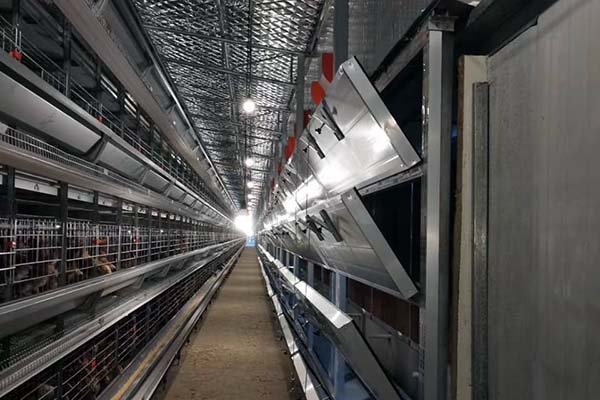Optimizing Layer Hen Cage Systems in Ghana: A Comprehensive Guide
Introduction to Layer Hen Cage Systems in Ghana
Layer hen cage systems play a crucial role in the poultry industry, particularly in Ghana. With a growing demand for eggs, efficient and hygienic cage systems are essential for sustainable poultry farming. This article aims to provide a comprehensive guide on layer hen cage systems in Ghana, focusing on the latest trends and best practices.
Key Components of Layer Hen Cages in Ghana
To ensure optimal performance, layer hen cages in Ghana should incorporate the following components:
- Space Allocation: Each layer hen should have a minimum of 0.5 square meters of space for comfort and mobility.
- Airflow: Proper ventilation is vital to maintain a healthy environment and prevent diseases.
- Food and Water System: Automatic feeders and waterers ensure a consistent supply of nutrients and hydration.
- Lights and Heat Control: Sufficient lighting and temperature control are essential for egg production and overall hen welfare.
Challenges in Layer Hen Cage Systems in Ghana
Despite the increasing popularity of layer hen cage systems, several challenges persist in the Ghanaian poultry industry:
- High Initial Investment: Setting up a layer hen cage system requires significant capital investment.
- Lack of Technical Expertise: Proper maintenance and operation of cage systems require specialized knowledge.
- Market Volatility: Fluctuations in egg prices can impact the profitability of poultry farming.
Benefits of Investing in Layer Hen Cages
Despite the challenges, investing in layer hen cage systems offers numerous benefits:
- Increased Egg Production: Studies show that cage systems can significantly increase egg production compared to traditional floor systems.
- Improved Egg Quality: Caged hens tend to produce larger, stronger eggs with fewer defects.
- Enhanced Hygiene and Biosecurity: Cages reduce the risk of disease transmission and improve overall farm hygiene.
Market Trends and Statistics
According to recent statistics, the layer hen cage market in Ghana is expected to grow at a CAGR of 7% from 2020 to 2025. The increasing awareness of egg quality and hygiene is driving the demand for advanced cage systems.
Conclusion
Investing in layer hen cage systems in Ghana offers numerous benefits, but it is essential to consider the challenges and best practices. To help you make an informed decision, contact LIVI Mechanical for a free chicken farming design and equipment quotation.





